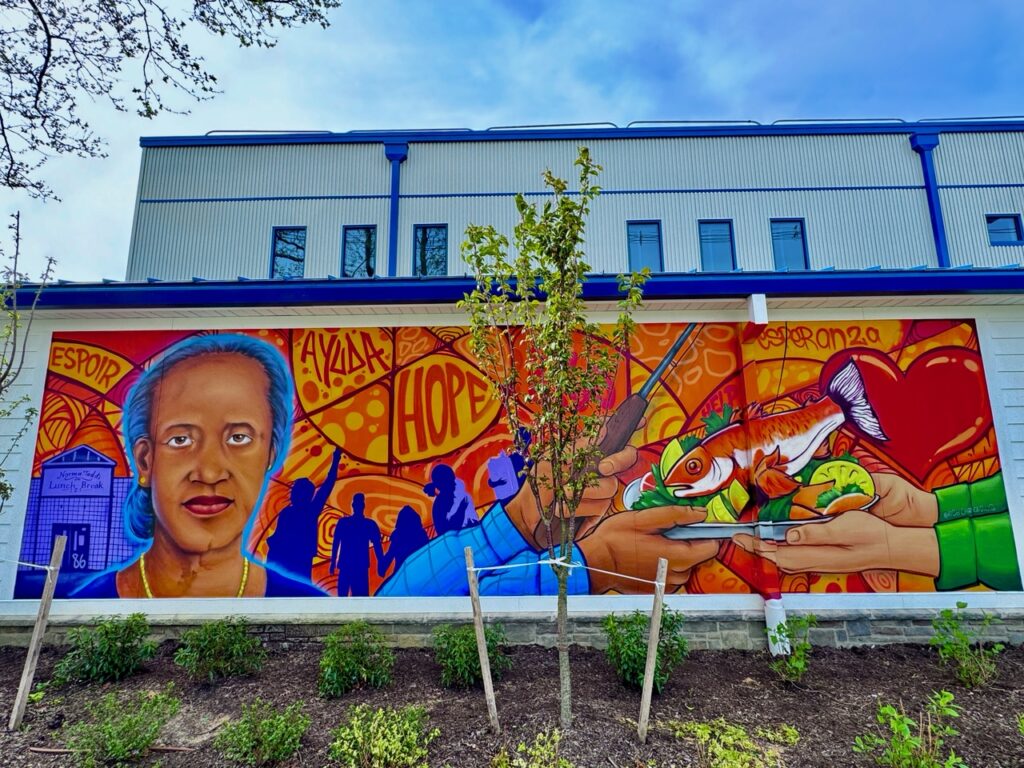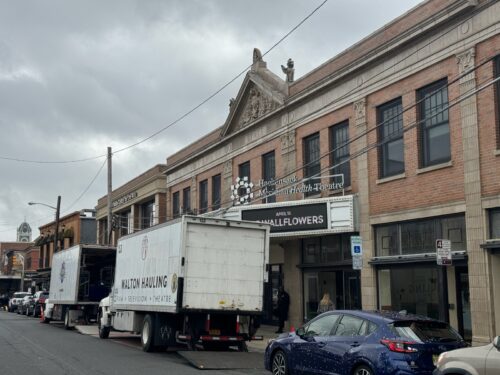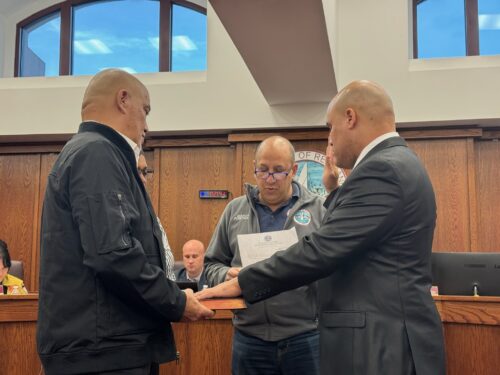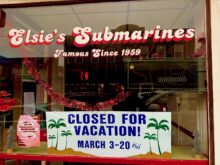Andrew Gennusa was just 21 years old when he and his brother, Jason, founded Manhattan Bagel Co. with a single store in in a Middlesex County strip mall.
It turned out to be a the start of a heady ride. The company went public and saw its stock soar as the business grew to a chain of nearly 400 stores, most of them franchises.
The flame-out was nearly as spectacular. A decade into its run came millions of dollars in losses, a called bank loan, bankruptcy and a sale to new owners.
Two years later, the Gennusas were out, and the company they founded sailed on to become part of a food company that last year did $390 million in sales.
But Andew Gennusa has come back, too, only much more quietly. In 2001, he and his brother became partners with Basil T Leaf’s Victor Rallo Sr. (now deceased) and Victor Rallo Jr. in a tiny shop on Bridge Avenue called Zebu Coffee, named for a hump-backed ox.
Today, the business is called Zebu Forno, and it’s no longer just a coffee shop. And having bought out his partners, 41-year-old Andrew Gennusa is ready for a return to the… well, not exactly the big time, but something bigger than what he’s got, and yet smaller than what he once had.
Zebu is easily one of the hottest spots on Broad Street. With its free wi-fi Internet access, outdoor seating and bold interior design worthy of an architecture magazine, not to mention a wildly varied menu from breakfast to dinner and desserts, it attracts a daylong stream of customers.
And Gennusa is a hands-on owner. He was there behind the counter on the morning of July 3, and still there when the place closed in the wee hours of July 4, having stayed open late to accomodate the fireworks crowd.
But Gennusa is a franchiser at heart, and last month, he announced a plan to license and build 10 to 20 franchise Zebus in New Jersey and eastern Pennsylvania over the next five years.
Not 400 stores, or even 100. Twenty, tops.
“It’s about redoing what I did, but not remaking any of the errors, learning from the lessons,” he tells redbankgreen, seated at a table near the coffee service station. “If I open 20 stores, in 10 years I want all 20 of those stores to still be there.”
The Zebu that opened at The Commons at Holmdel a few months back is the first such franchise the prototype for what’s to come, Gennusa says.
It’s a modest plan, he admits, one that emphasizes quality over quantity. But it also enables Gennusa to do what he says he enjoys more than anything else about being in business: setting up other people as entrepreneurs, and helping them cultivate success.
“The franchising end of it has always been one of the biggest highs for me putting people in business who wouldn’t have been on their own,” he says.
But if that’s the case, why limit the number of stores? Just look in any industry trade magazine, he says. While going national may have worked for Starbucks and many others, those days are gone, especially in the food service industry, Gennusa says.
“What’s going on now is that regional chains are dominating,” he says.
Another lesson? To work, a food business can’t have just one “day part,” meaning breakfast, lunch or dinner. It’s got to have three day parts, Gennusa says.
Zebu’s got that, and it works, with a menu that ranges from bagels and muffins to salads and calzones, with all baked goods passing through the giant oven at the front of the store. Annual sales at the location exceed $1 million, and have been growing at a 10-percent rate or better since 2004, Gennusa says.
Born and raised in Holmdel, Gennusa still lives there with his wife and four kids. He started in the food service business right out of high school, and with Jason, who’s six years older, soon owned a Chicken Holiday a store in Dunellen.
Manhattan Bagel came about when the Gennusas had a lease on an empty store and decided to start a business that wouldn’t compete with their fried-chicken shop, which had moved to a bigger space in the same shopping center.
Zebu Forno, by contrast, was built with an eye toward the future. Tucked quietly away in the Broad Street store is a production bakery that was intentionally overbuilt to allow Gennusa to supply dozens of stores with frozen breads and other baked goods as the business grew.
And the idea was growth, even if the initial owners didn’t all have the same horizon in mind.
“Everybody’s expectation was that this was going to be ‘the next Manhattan Bagel,’ ” says Gennusa But that was never how he saw it.
“The next Manhattan Bagel was always a fantasy. I don’t intend on this being the next Manhattan Bagel. I intend on this being a strong regional franchise, period,” he says.
“I think I’ve learned a lot of lessons” from the Manhattan Bagel experience, Gennusa says. “I see Zebu as a much smaller business, with strategic, planned openings.”
Another mistake he plans to avoid? He has no desire to ever deal with Wall Street again. “You’re always chasing your numbers, and you lose sight of the most simple things entailed in running your business,” he says. “Companies lose focus on what got them to that point.”
Gennusa has no specifics to offer yet on where future franchises might open. But the stratgy, he says, will be to focus on central business districts and “lifestyle center” sites that will provide enough foot traffic to enable franchises to run seven days a week.
In terms of vibe, each store, like the original, will aim to be “a town gathering place, a comfortable and relaxed setting where people of all ages can meet and sit for hours without feeling pressured,” he says.
So far, Gennusa says, the Holmdel place is “doing extremely well.” Michael Gallicchio, a partner in Red Hawk Food Services, the company that owns the franchise, trained for three months in the Red Bank store.
“We’re a two-store chain that looks like a hundred-store chain,” Gennusa says. “We’re branded well, we’re managed very well. And sales usually follow those things.”






















